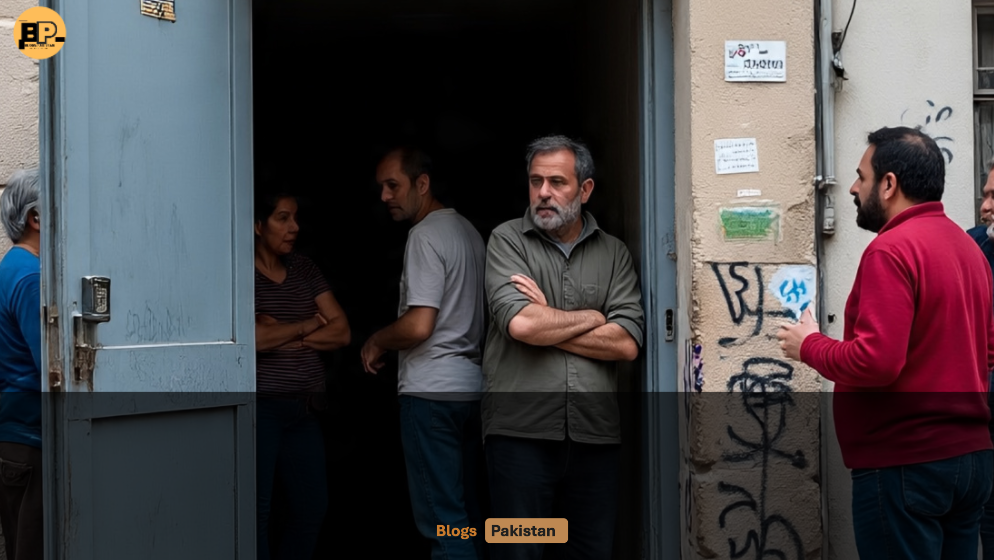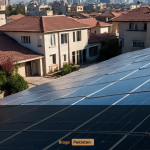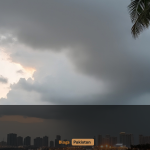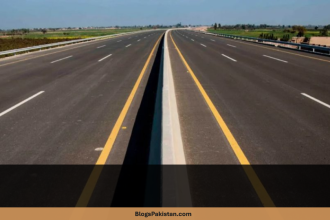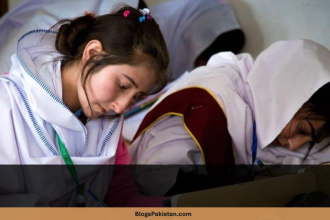When missiles rained down during the Israel-Iran conflict, people ran for cover. . Families scrambled into bomb shelters. But for Palestinian citizens of Israel, many found the shelter doors slammed in their faces — not by rockets, but by neighbors.
Yes, in a modern democracy that claims to protect all its citizens, millions were denied protection because of their ethnicity and language. While the skies lit up with Iranian missiles, the ground cracked open with something more painful — discrimination.
The Moment the Door Slammed: A Night Samar Will Never Forget
Samar al-Rashed, a 29-year-old single mother living near Acre, didn’t have time to think. As sirens blared, she grabbed her 5-year-old daughter, water bottles, and a phone — and ran.
They made it to the building’s shelter. But as she gently urged her daughter forward in Arabic, a neighbor blocked her path. One word cut deeper than the missiles overhead: “Not for you.”
She pleaded — in fluent Hebrew — but the door was shut. Her crime? Speaking Arabic.
From her apartment, Samar watched missiles fall, knowing neither the sky nor her neighbors would protect her.
The Bigger Picture: Not a One-Off Incident
What happened to Samar is not rare. According to Adalah – The Legal Center for Arab Minority Rights in Israel, over 65 Israeli laws discriminate against Palestinian citizens. That’s one law for nearly every year since Israel was founded.
And during war? Things get worse.
- Palestinian Israelis are more likely to be denied shelter access.
- Arrested for social media posts, even emojis.
- Ignored by emergency services, or worse, treated with suspicion.
When Iran launched its unprecedented attack, over 300 drones and missiles filled the skies — and Palestinian Israelis were reminded again: bombs don’t discriminate, but the system does.
Locked Out Under Fire: Mohammed’s Story
Mohammed Dabdoob, a mobile repair technician in Haifa, was working late when the alerts hit. He dropped everything and ran for the nearest shelter. But when he got there? Locked. No code. No help.
“I banged on the door. I shouted in Hebrew. Nothing,” he recalled.
Minutes later, a missile exploded nearby. Glass flew. Sirens wailed. “It felt like Beirut’s port explosion,” he said.
The door eventually opened. Survivors exited. But no one made eye contact.
“There’s no safety for us,” Mohammed said. “Not from rockets, not from neighbors.”
Why Aren’t There Enough Shelters?
Let’s talk numbers:
- Over 70% of homes in Palestinian towns lack bomb shelters, compared to 25% of Jewish homes.
- Government funds for shelters are disproportionately given to Jewish municipalities.
- Older buildings in Palestinian areas remain without reinforced rooms or proper civil defense upgrades.
This isn’t an accident. It’s policy.
Even in mixed cities like Lod (Lydd) — where Jews and Palestinians share space — Palestinians are often shunted to neglected neighborhoods, without access to secure infrastructure.
Yara’s Experience: “We Were Begging for Protection”
Yara Srour, a 22-year-old nursing student, lives in a run-down building in Lod. Her area, al-Mahatta, has no shelter. During the Iran-Israel attack, she and her family tried to escape to the city’s newer areas.
But modern buildings had clear rules: residents only. Most of them, middle-class Jews.
“We knocked. We begged,” Yara said. “But no one opened the doors. They just watched us through peepholes.”
Her mother, who has joint problems, couldn’t run. “It was humiliating,” she added. “The bombs were coming. We were treated like outsiders in our own city.”
Loyalty Tested, Protection Denied
The Israeli government regularly expects unwavering loyalty from Palestinian citizens — especially in times of war. But when missiles start flying?
- Palestinian Israelis are the first to be forgotten.
- Their neighborhoods are the last to receive funding.
- Their grief is politicized, their fear ignored.
Prime Minister Netanyahu said: “Iran’s missiles target all Israelis – Jews and Arabs alike.” But for families like Samar’s and Mohammed’s, that felt like a cruel joke.
What This Means for the Future
This isn’t just about access to a shelter. It’s about equal protection under law. It’s about a country that demands allegiance but offers conditional safety.
Palestinian citizens of Israel make up 21% of the population — nearly two million people. They pay taxes. They vote. They contribute to healthcare, education, and tech.
So why are they still treated as second-class citizens when bombs fall?
A Warning From Within
When a country refuses to protect a fifth of its citizens, it weakens its own resilience. Trust erodes. Community fractures. And discrimination becomes deadly.
“I want to serve,” said Yara. “I’m becoming a nurse. But how can I protect others when the state won’t protect my own mother?”
Samar echoed this pain. “I didn’t flee to Jordan. But I might. I want my daughter to live. And here, even in war, we’re treated like the enemy.”
Final Thoughts: The Shelter is Just a Symbol
This isn’t just about one mother, one technician, or one student. It’s about what kind of country Israel wants to be. The Israeli-Palestinian divide has always been about land, rights, and identity. Now, it’s also about life and death in the face of a missile.
If a citizen can’t find safety during war, what kind of citizenship is that?
As missiles fall from the sky, the ground truth remains unchanged: in Israel, for many Palestinian citizens, being a legal resident doesn’t mean you’ll be treated like one.

